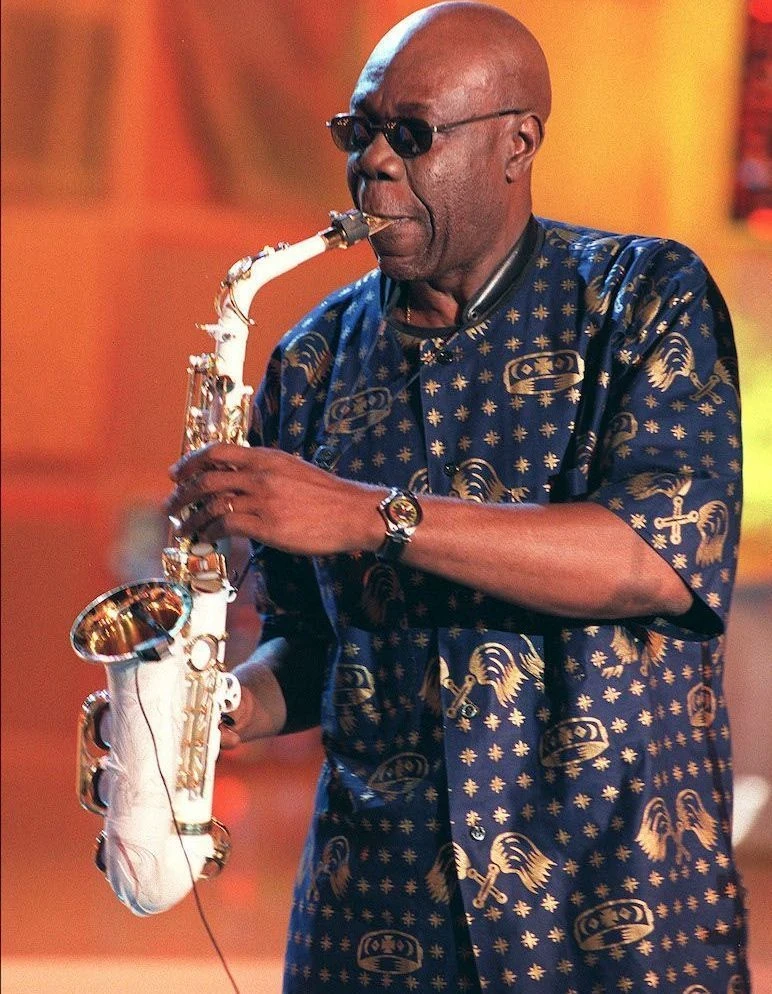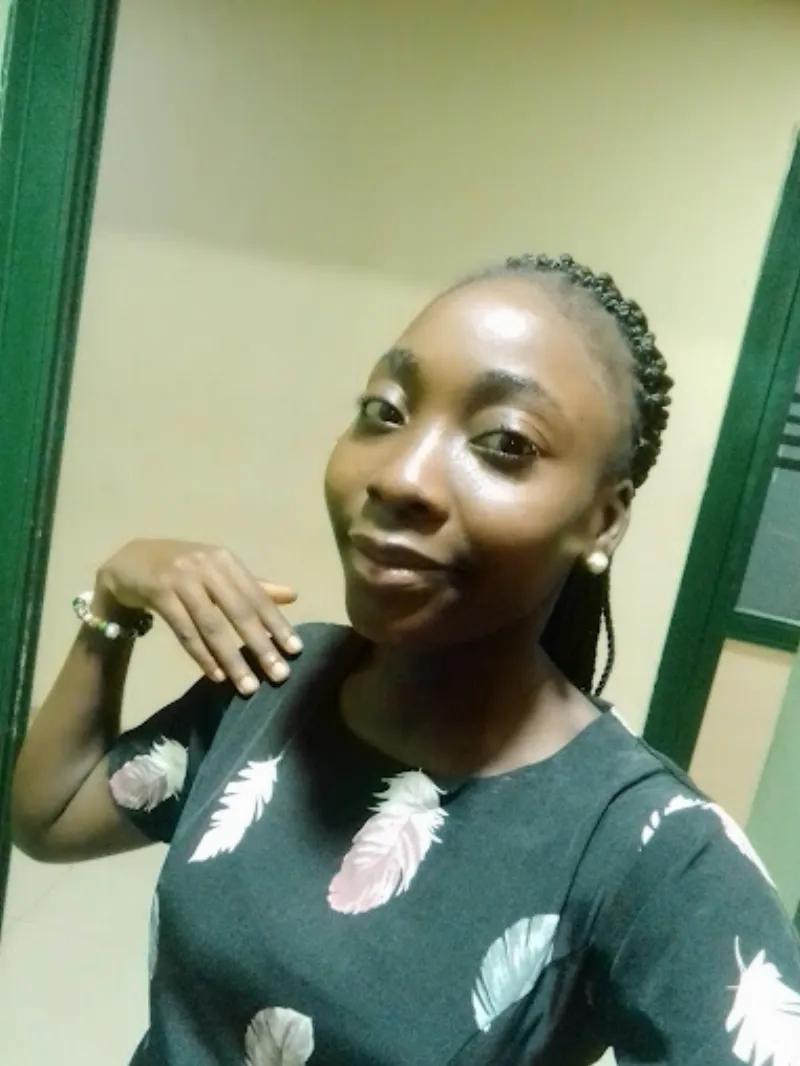Manu Dibango is known for his ability to combine African melodies and contemporary jazz in his music and collaboration with great Artists which earned him global recognition. Read more to know about h

Manu Dibango is a Cameroon-born, multi-talented saxophonist, pianist, and composer who has left an indelible mark on the music stage.
Dibango’s innovative sound, a captivating blend of traditional African melodies and contemporary jazz, resonated with audiences worldwide. His dynamic and brilliance in music made him a sought-after performer, as did his collaborations with great musicians like Fela Anikulapo Kuti and others.
Tragically, on March 24, 2020, due to complications from COVID-19, Dibango passed away. His untimely passing sent shockwaves through the music industry and beyond, as fans and fellow artists mourned the loss of a true icon.
In this blog post, I will explain Manu Dibango's life and legacy, exploring his musical journey, impact, and recognition, among other things.
Summary
- Manu Dibango was a pioneering force who seamlessly blended the rhythms of Africa with the sophisticated harmonies of the West.
- His infectious melodies and innovative tunes captivated audiences worldwide, earning him a place in music history.
- Beyond his musical genius, Dibango was a cultural ambassador, using his platform to promote peace, understanding, and the richness of African culture.
- His legacy extends far beyond his chart-topping hits; it is a testament to what music can do. For Manu, it is to unite people and inspire societal change.
Manu Dibango Early Life and Education
Emmanuel "Manu" N'Djoké Dibango was born on December 13, 1933, in Douala, Cameroon. His parents belonged to two different ethnic groups in Cameroon, a fact that significantly shaped his identity and worldview. His father, Michel Manfred N'Djoké Dibango, was from the Yabassi tribe, while his mother was Duala.
His musical aptitude was evident from a young age. He began his musical exploration by singing in the church choir, where his mother served as a choir leader. He also showed interest in playing instruments. This early exposure to music laid the foundation for his future career.
To further his education, Dibango left Cameroon at the age of 15 to study in France. He immersed himself in Western classical music, learning to play the piano there. However, his musical interests soon expanded beyond classical music as he discovered the world of jazz.
This education period and exposure to diverse musical styles were instrumental in shaping Dibango's unique sound and his ability to blend African rhythms with Western musical forms seamlessly.
Manu Dibango’s Musical Career
Manu Dibango’s exposure to a diverse range of music, from traditional Cameroonian rhythms to Western jazz and soul, laid the foundation for his unique style. He honed his skills as a saxophonist and vibraphonist, and his talent quickly propelled him into the limelight.
Dibango's breakthrough came with the infectious "Soul Makossa," a groundbreaking fusion of jazz, funk, and Cameroonian makossa rhythms. Released in 1972, the song became an international sensation, influencing countless artists and establishing Dibango as a pioneer of world music.
Throughout his career, Dibango fearlessly experimented with different genres and collaborated with a diverse array of musicians. He worked with legends like Fela Kuti, Herbie Hancock, and Sly and Robbie, creating music that was both innovative and deeply rooted in his African heritage.
Dibango's music was a bridge between cultures, connecting people from different backgrounds through the universal language of rhythm and melody.
Manu Dibango Hit Songs and Collaboration with Major Artists
Manu Dibango's musical journey was a testament to his ability to seamlessly blend African rhythms with Western influences, creating a unique sound that captivated audiences worldwide. This fusion was evident in his chart-topping hits and his collaborations with iconic artists.
At the heart of Dibango's discography is the infectious rhythm of "Soul Makossa." Released in 1972, this track became an international sensation, influencing countless artists across genres. Its irresistible groove and catchy melody propelled Dibango into the global spotlight, earning him a place in music history. The song's enduring popularity is a testament to its timeless appeal, with its iconic refrain sampled by music legends like Michael Jackson and Rihanna.
He worked with a wide range of artists, enriching his sound and expanding his audience. Some of his most notable partnerships include:
Herbie Hancock: The duo's album, "Electric Africa," in 1985 was a groundbreaking collaboration that fused jazz with African rhythms. Tracks like "Eyes of Africa" and "Monkey Town" showcased their innovative approach to music.
Hugh Masekela: This iconic pairing brought together two African jazz giants, resulting in the album "Afrijazzy in 1986".Songs like "Bring Back the Good Times" and "Bra Manu" were celebrated for their infectious energy and soulful melodies.
Sly & Robbie: The Jamaican rhythm section added their signature flair to Dibango's music, creating a unique blend of African and Caribbean sounds. Their collaboration on tracks like "Reggae Makossa" and "Waka Juju" (1982) showcased the power of this musical fusion.
In 1994, he produced Wakafrika in collaboration with African vocal like Youssou N’Dour from Senegal, King Sunny Ade from Nigeria, Salif Keita (Mali), Angélique Kidjo from Benin, Ray Lema (Congo), and the group Ladysmith Black Mambazo (South Africa), as well as other prominent musicians.
Manu Dibango Beyond The Stage
Manu Dibango is undoubtedly celebrated for his groundbreaking musical contributions. However, his talents extended far beyond the music. He also served as a humanitarian, cultural ambassador, leaving an indelible mark on the world.
He shared his life experiences and insights in his autobiography, Three Kilos of Coffee. This personal account offered fans a unique glimpse into the mind of a musical genius.
Also, Dibango's musical compositions graced the silver screen and television, adding depth and emotion to countless films and shows.
Recognized for his commitment to social causes, Dibango was awarded the prestigious UNESCO Peace Artist of the Year title in 2004. This honor underscored his dedication to promoting peace, understanding, and humanitarian efforts through his music and influence.
These achievements highlight Manu Dibango's extraordinary impact on the world and solidify his legacy as a true Renaissance man of music and culture.
Manu Dibango’s Recognition and Awards
Manu Dibango didn't amass a long list of traditional music awards, but his impact on the music industry is undeniable.
Dibango received two Grammy nominations in 1974 for his groundbreaking song "Soul Makossa." This recognition brought African music to a wider international audience.
UNESCO Artist for Peace: In 2004, Dibango was honored with the prestigious title of UNESCO Artist for Peace. This acknowledged his contributions to intercultural dialogue and promoting peace through music.
His music served as a bridge between African and Western cultures, making him a de facto cultural ambassador.
His ability to seamlessly blend African rhythms with Western sounds created a new originality as far as music is concerned, paving the way for countless artists who followed in his footsteps.
Conclusion
Manu Dibango was more than just a musician; he was a cultural ambassador, a pioneer, and an inspiration. His ability to seamlessly blend the rhythms of Africa with the sophisticated harmonies of Western music created a sound that was both groundbreaking and timeless.
Dibango’s collaborations with global music legends made his music transcend borders, connecting people from different cultures through the universal language of rhythm.
Beyond his musical achievements, his commitment to social causes earned him a UNESCO Artist for Peace role, solidifying his humanitarian legacy.
Manu Dibango's music lives on, though he is far gone. His influence continues to inspire new generations of musicians, and his legacy as a world music pioneer will be celebrated for years to come.

